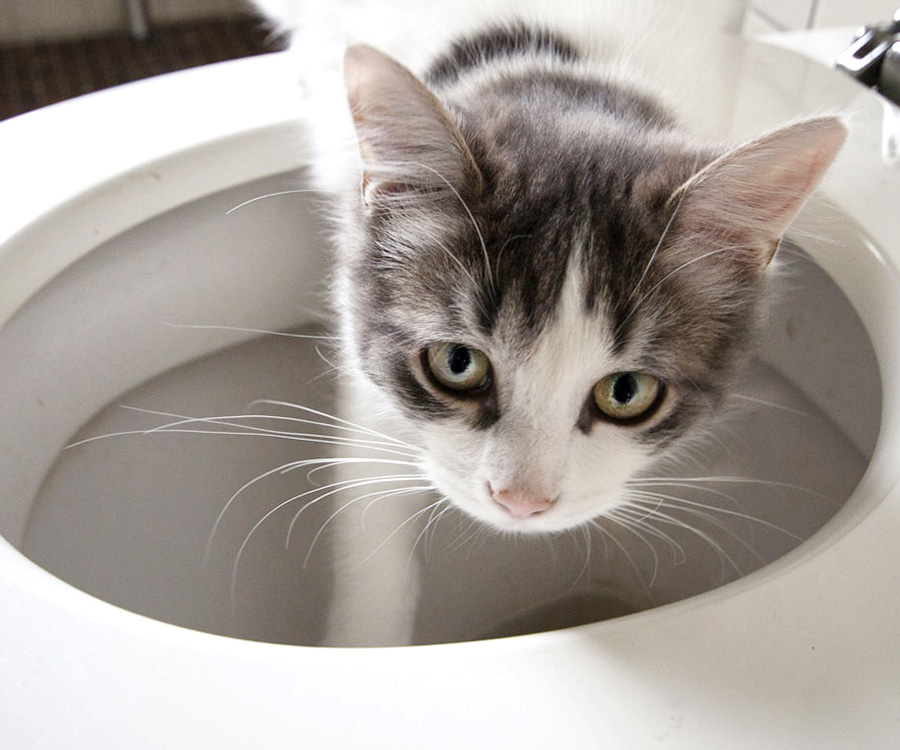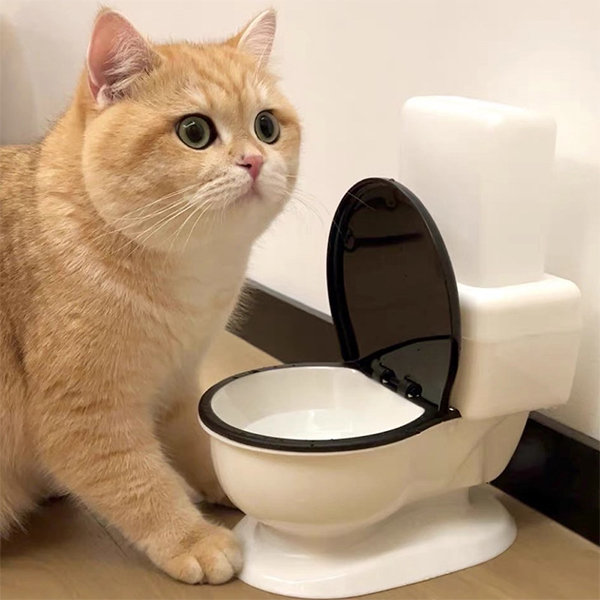Factors Why You Should Never Dispose of Animal Waste Down the Toilet
Factors Why You Should Never Dispose of Animal Waste Down the Toilet
Blog Article
The writer is making several great points about Why you should never flush dog poop down the toilet as a whole in this great article in the next paragraphs.

When it involves taking care of waste, specifically animal waste, many individuals commonly resort to the practical alternative of flushing it down the bathroom. Nonetheless, this seemingly simple service can have significant repercussions for the atmosphere and public health. In this post, we'll explore why flushing animal waste down the toilet is a negative concept and provide different methods for correct disposal.
Introduction
Appropriate garbage disposal is vital for maintaining ecological sustainability and public health. While it may appear safe to flush animal waste down the bathroom, it can cause different concerns, both for the setting and human wellness.
Risks of flushing animal waste
Ecological impact
Flushing pet waste introduces damaging microorganisms and microorganisms into waterways, which can adversely impact marine environments. These pathogens can infect water sources and damage marine life, disrupting fragile ecological communities.
Public health worries
Pet waste contains harmful bacteria such as E. coli and Salmonella, which can pose severe wellness dangers to people. Purging animal waste down the commode can pollute water products, causing the spread of conditions and infections.
Alternatives to flushing
As opposed to flushing pet waste down the bathroom, there are several alternate disposal methods that are more environmentally friendly and sanitary.
Composting
Composting animal waste is an environmentally friendly means to deal with it. By composting, organic matter is broken down into nutrient-rich dirt, which can be used to fertilize yards and plants.
Landfill disposal
Dealing with animal waste in a land fill is an additional choice. While not as eco-friendly as composting, it is a more secure option to flushing, as it prevents the contamination of water resources.
Pet garbage disposal systems
There are specific pet dog garbage disposal systems readily available that securely and hygienically deal with animal waste. These systems usually utilize enzymes to break down waste and get rid of smells.
Actions to appropriate animal waste disposal
To guarantee correct disposal of pet waste, follow these actions:
Scooping and bagging waste
Routinely scoop and bag pet waste making use of eco-friendly bags. This stops waste from infecting the environment.
Making use of designated waste bins
Dispose of bagged animal waste in marked waste containers, such as garden compost bins or landfill containers. Avoid flushing it down the commode in any way prices.
Cleaning litter boxes and pet dog locations regularly
On a regular basis tidy litter boxes and pet dog areas website to prevent the build-up of waste and germs. Usage pet-safe cleaning items to keep hygiene.
Advantages of appropriate disposal techniques
Embracing appropriate disposal techniques for animal waste provides numerous benefits:
Minimized environmental pollution
Appropriate disposal methods minimize the threat of environmental pollution, safeguarding waterways and ecological communities from contamination
Minimized danger of water contamination.
By staying clear of flushing animal waste down the commode, the threat of water contamination is dramatically lowered, protecting public health.
Improved cleanliness and health
Appropriate disposal techniques advertise better cleanliness and hygiene, creating a safer setting for both people and animals.
Final thought
To conclude, flushing pet waste down the toilet is harmful to the environment and public health. By taking on different disposal methods and following correct waste monitoring methods, we can minimize the adverse influence of pet waste and add to a cleaner, healthier world.
What To Do With Dog Poo – The Do's And Don'ts Of Disposing Of Faeces
Dog poo bins
Some councils provide dedicated dog waste bins in popular dog-walking areas that can take dog poo that has been bagged but you can legally dispose of dog waste in any public litter bin, as long as it is securely bagged. This also applies to your wheelie bin at home.
Do not flush
Water companies do not recommend flushing dog faeces down the toilet because certain parasites can survive the water processing treatment and are potentially harmful to humans. You should also never consider flushing dog poo that has been bagged down the toilet as the bags will not break down and instead create severe blockages in the sewage system.
In the woods
The Forestry Commission promotes a ‘stick and flick’ method for dealing with waste in the woods. This means finding a stick and using it to flick any poo from off the path so that it is out of the way of other walkers. You could also bury it as long as it is not in an area where there might be livestock.
Livestock
Parasites found in dog poo can be transmitted to livestock if they inadvertently eat infected faeces that has been left on grazing land. This could result in the death of sheep or abortion in cattle so you should always make sure you pick up your dog’s waste in fields where livestock could be present.

On a regular basis tidy litter boxes and pet dog areas website to prevent the build-up of waste and germs. Usage pet-safe cleaning items to keep hygiene.
Advantages of appropriate disposal techniques
Embracing appropriate disposal techniques for animal waste provides numerous benefits:
Minimized environmental pollution
Appropriate disposal methods minimize the threat of environmental pollution, safeguarding waterways and ecological communities from contamination
Minimized danger of water contamination.
By staying clear of flushing animal waste down the commode, the threat of water contamination is dramatically lowered, protecting public health.
Improved cleanliness and health
Appropriate disposal techniques advertise better cleanliness and hygiene, creating a safer setting for both people and animals.
Final thought
To conclude, flushing pet waste down the toilet is harmful to the environment and public health. By taking on different disposal methods and following correct waste monitoring methods, we can minimize the adverse influence of pet waste and add to a cleaner, healthier world.
What To Do With Dog Poo – The Do's And Don'ts Of Disposing Of Faeces
Dog poo bins
Some councils provide dedicated dog waste bins in popular dog-walking areas that can take dog poo that has been bagged but you can legally dispose of dog waste in any public litter bin, as long as it is securely bagged. This also applies to your wheelie bin at home.
Do not flush
Water companies do not recommend flushing dog faeces down the toilet because certain parasites can survive the water processing treatment and are potentially harmful to humans. You should also never consider flushing dog poo that has been bagged down the toilet as the bags will not break down and instead create severe blockages in the sewage system.
In the woods
The Forestry Commission promotes a ‘stick and flick’ method for dealing with waste in the woods. This means finding a stick and using it to flick any poo from off the path so that it is out of the way of other walkers. You could also bury it as long as it is not in an area where there might be livestock.
Livestock
Parasites found in dog poo can be transmitted to livestock if they inadvertently eat infected faeces that has been left on grazing land. This could result in the death of sheep or abortion in cattle so you should always make sure you pick up your dog’s waste in fields where livestock could be present.

I came across that piece of writing on 4 Reasons Why Dog Poop Cleanup is Important when doing a lookup on the internet. Liked our piece? Please quickly share it. Help somebody else check it out. Thanks so much for your time spent reading it.
Book Report this page